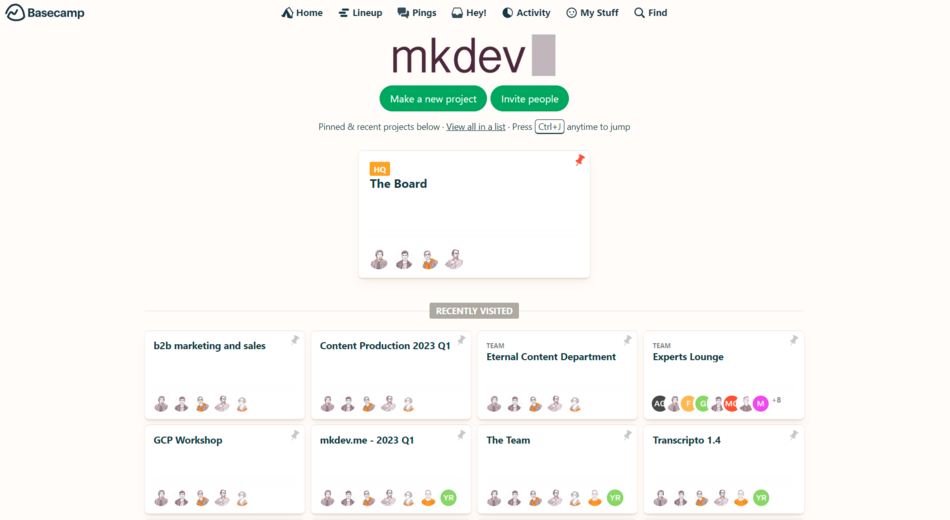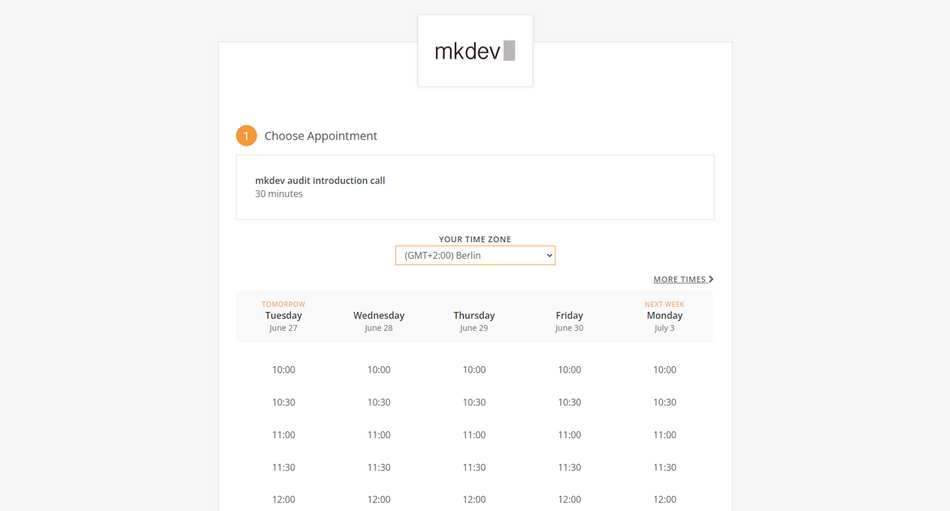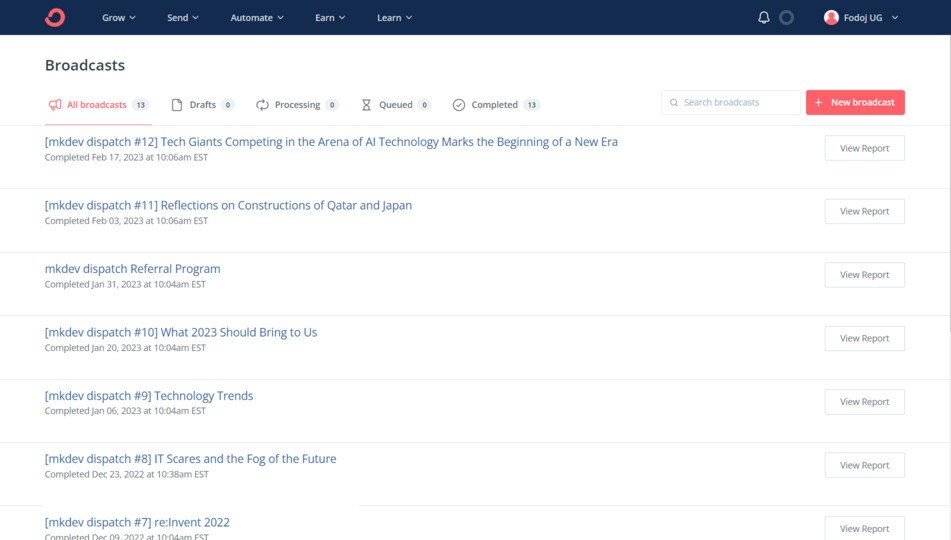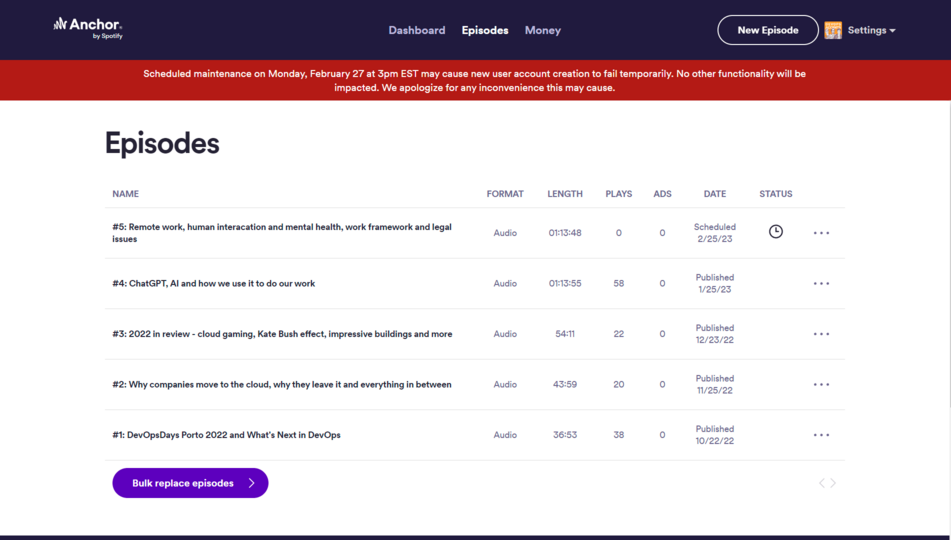Tools & Services for IT Consulting

Ages ago we’ve published an article called Services for Online Education Startup, going into details of which particular tools we use to run the company, together with the exact numbers on how much we spend per month. A lot has changed since then. We have a much bigger team now: our core team doubled, our experts team quadrupled. We’ve also released a couple of new tiny SaaS applications, making it in total 3 different products that we build.
Most importantly, though, we’ve pivoted from being an Online Education Startup towards an IT Consulting, from B2C to B2B. It’s a story for another time about why and how we’ve pivoted.
In short, we shifted our focus from helping people learn programming towards helping US and EU companies to innovate faster with the help of Cloud Native technologies, deep Automation and the DevOps spirit.
DevOps consulting: DevOps is a cultural and technological journey. We'll be thrilled to be your guides on any part of this journey. About consulting
As a result, we’ve replaced some of the tools for the ones that suit us better and added some new tools to support with the new challenges and projects that we have.
Crisp: €95/month
We’ve used Intercom as a customer support / chat system before. At some point, Intercom pricing became too confusing and too much for us. Looking at the Intercom’s pricing page in 2023, it’s still confusing. I get it: probably Intercom re-focused on serving businesses much, much bigger than mkdev, with bigger needs and pockets.
We’ve looked for something with a rich feature set and a simple pricing model. We’ve found Crisp, a fellow European company . Crisp has a simple and transparent pricing: you pay €95/month for all the features, for a team of 20 people. We are using it for support chat and email, for the knowledge base, for simple automations and as a shared inbox for the whole team.
We are using Crisp on mkdev, Claimora and Transcripto.
Slack: €300/year
We’ve used to have Slack ages ago, but then we stopped using it because of Basecamp. Basecamp already has satisfying built-in chatting capabilities, and it is perfect for any internal text-based communication. But, as a consulting company, we meet our customers where they are, and quite often they are in Slack. Slack Connect is a fantastic way to work with our customers side by side, without leaving our own Slack space.
Naturally, once we’ve started using Slack for collaborating with the customers, we quickly ended up using Slack for internal communication as well. At this point, around 90% of all the quick chat communication happens in Slack, while all the thoughtful, long-form and long-term discussions belong to Basecamp.
Basecamp: €29/month
It’s crazy to think about the fact that we still pay for Basecamp only €29/month a month, simply because it was the original price they’ve set at the product launch, and this is the price that will stay with us forever. One rarely sees such nice moves from other businesses, big kudos to 37Signals for this.
Basecamp is still our core tool for organizing all the work we do. We’ve shuffled a lot how we structure projects. For example, for product development, we’ve moved from 1 Project per product, to 1 Project per 3 months cycle of this product’s development. We also create new short-lived projects to work on new content, workshops, courses, customer projects and everything else.

This is what I wrote about Basecamp more than 5 years ago:
Basecamp is jaw-droppingly convenient. I tested many different project managers, but none of them were as intelligible and focused on all the tasks at the same time as Basecamp. It's our central hub and all the internal workings are done here. We would be six times less productive, if we didn't use Basecamp. We pay $31 a month for it. It seems that they raised the prices to $99 ever since, but we are still charged $31 for some reason. But even if they do raise prices, we will pay anyway.
Years later, nothing changed. As we grew the team and the number of products, and pivoted away to a different kind of business, Basecamp remained an essential tool for the company. And new features like Card Tables help us organize the work even better.
Google Workspaces: €50/month
We keep using Google for Work. Among included products, Google Mail, Google Meet and Google Docs are most actively used. It’s great value for the money, even thought we are constantly confused by how invoices are generated.
GitHub: free
In July 2022 we completely re-implemented mkdev.me cloud infrastructure, moved to the serverless setup (AWS ECS Fargate + AWS Lambda, topic for another article) and re-structured our AWS accounts. At the same time, we decided to move away from Gitlab to GitHub. While Gitlab is certainly an incredible product, we wanted to consolidate both our open source and private repositories in a single place and GitHub felt like a better choice for us.
We are using GitHub Actions for all of our CI/CD, I personally use GitHub Copilot for development, and we might start actively using GitHub CodeSpaces. It’s amazing how much GitHub changed in a good way in the last couple of years. 4-5 years ago it lacked behind Gitlab in the majority of ways, but today it’s back into a good shape and new features and improvements are being released regularly.
As of today, we actually don’t pay anything for GitHub, a combination of GitHub Actions free tier and free private repositories covers our needs pretty well at this point, but most likely we will switch to a paid plan in 2023.
AWS and GCP: €200/month
We are running on multi-cloud, with Claimora running on Google Cloud Run, and Transcripto and mkdev on AWS. Both clouds are also used for running labs and proof of concepts for our videos and courses. Monthly bill differs from month to month, but we are averaging around €200/month.
SquareSpace Scheduling: €260/year
We needed a way to simplify scheduling calls with us, so we purchased SquareSpace Scheduling. All our calendars are synced into this tool. We’ve built a number of custom scheduling links that we share with our customers, as well as integrate them into this website - for example, you can schedule a call with us here.

Penta / Qonto: €24/year
Penta is a digital bank for businesses in Germany and few other EU countries. They recently got merged with Qonto, so we are very curious how this turns out. Penta lacks any particularly mind-blowing features, but it gets the job done: it’s mobile-friendly, has some integrations with bookkeeping systems (but none of its own) and decent multi-user access. As the majority of new digital banks in Germany, Penta is running on top of SolarisBank. It means, that Penta itself is not a bank, but rather a server on top of banking API, provided by SolarisBank.
Stripe
We are still using Stripe, both for Transcripto and Claimora. We’ve stopped accepting b2c payments on mkdev.me. We're not investing any of our time and attention into our old business model, and it's not worth to maintain it any longer. Naturally, Stripe also grew a lot in features and capabilities, and we are hardly keeping up with them. As always, they charge a fee on each transaction, and there is no monthly charge.
Dropbox: €720/year
As we started to produce more and more content, Dropbox became even more important for us. All raw and edited videos, hundreds of our incredible illustrations, stickers, documents, templates, invoices, everything is there, nicely organized. We do get some storage space from our Google subscription as well, but nothing beats the convenience of Dropbox, at least for us.
ConvertKit: $29/month
One of the biggest mkdev releases of 2022 was the re-launch of our email newsletter, now focusing on DevOps, Cloud and Cloud Native topics. You can read about mkdev dispatch (including all the previous issues) on the website, or, most likely, you've already got a pop-up in your face, suggesting subscribing.
We consider the newsletter one of the most important assets for us, that helps us to stay in touch with our audience, and share with them everything we’ve learned and discovered ourselves.

I am personally extremely happy with ConvertKit. It’s a tool I wanted to start using for a while, and now, finally, the stars have aligned, and mkdev launched a great newsletter, implemented with this great tool.
As a part of the subscription, we also get SparkLoop, a referral program. If you invite enough friends to our newsletter, you'll get some amazing dispatch-exclusive swag, like stickers, mugs or even a free consultation. Here is the announcement of this program:
Zoho One: €215/month
Finally, the beast, the giant, the tool that has all the tools. We were looking for a CRM to organize our sales process, and we found Zoho CRM. What we quickly learned, was that Zoho has literally hundreds of mediocre to great applications, most of them included in a single subscription called Zoho One.
Besides Zoho CRM, we’ve started using Zoho Books and Zoho Recruit. Then we figured that Zoho Campaigns solves lots of SMM pains for us, so now we use that as well. We also have some no-code workflows in Zoho Flow.
Honestly, I don’t know how to explain how huge Zoho is. And by huge, I mean literally its size. There is an app for everything. There is an app for time tracking, there is an app for video calls, for email and calendars, replacement for Slack and so much more. It’s like AWS, but for SaaS products. It has everything.
We are still learning and discovering Zoho, and we plan to use it much more. With Zoho One, we get incredible value for the money. In theory, we could replace Google Workspaces with Zoho, as well as ConvertKit and Dropbox and some of the others. In practice, if you take each of the tools in Zoho individually, they lose in terms of quality and features. If ConvertKit is a solid 10/10 experience, then Zoho’s alternative is maybe 6/10. Is not horrible, but for some parts of the company, we want the best tool we can get. But for many other parts we are fine with good-enough. And some of the tools we use in Zoho are way better than “good-enough”.
Confluence Cloud: $34/month
With the ever-growing collection of content, we had to find a perfect tool for knowledge management. Desipte many people hating Confluence for all the bad reasons, we are totally in love with it’s current cloud version. Its editor is great and smooth, collaboration features are convenient, and we can structure and cross-reference everything in a very nice manner.
We store all the articles, video scripts, course content, internal notes and guides in Confluence. Our goal is to dump everything there as much as possible, as it increases the value of this knowledge base with every new page and note. Whenever we learn something new about how some technology works, we create a new page in Confluence. Whenever we discover some new tools, we add links to Confluence. It feels great to finally have a convinient, central, easy to use and manage place for all of our collective mkdev knowledge.
misc.
There are some services we don’t use that much, and that are free for us, but are still worth mentioning.
- Rollbar is still our choice for exception tracking for our products;
- HelloBar is used to lure people to our most important announcements on the website;
- WebinarFuel is used to automate our free webinars. We're still learning how to do that, and whether it makes sense for us, though!
- Anchor is used to publish our podcast, DevOps Accents, to all platforms possible;
- SpreadShirt, HelloPrint, Printful and Aufkleberdrucker24 are used to create our physical swag. We're likely to get rid of some of them and try to centralize everything in 1-2 services later.

To Sum It Up
In total, we pay around €800 for all the services. It’s hard to give an exact number, due to charges in different currencies, as well as changes in pricing based on usage, but most of the months we stay under €1000. Sometimes we feel like that’s a lot, but when we try to find things to throw away without losing in productivty and convenince, we don’t find anything.
In the end, it doesn't seem like the services we use changed that much since I wrote the original post. Many of the tools stayed. We replaced some with better alternatives, and we added some new ones to cover our new, B2B-specific use cases.
I feel like we're going to stick around with the services above for quite some time, as we hardly reached the limits of any of them. In many cases, our default today is to check whether our Zoho One subscription already has a tool that covers our new requirements. And in most cases it does.
We are open for suggestions, though! Please ping us if you think we should use something else, or if you think that boutique IT-Service provider should have any additional tools in the toolbox.
Article Series "Services for Your Project"
- Services for Online Education Startup
- Tools & Services for IT Consulting
